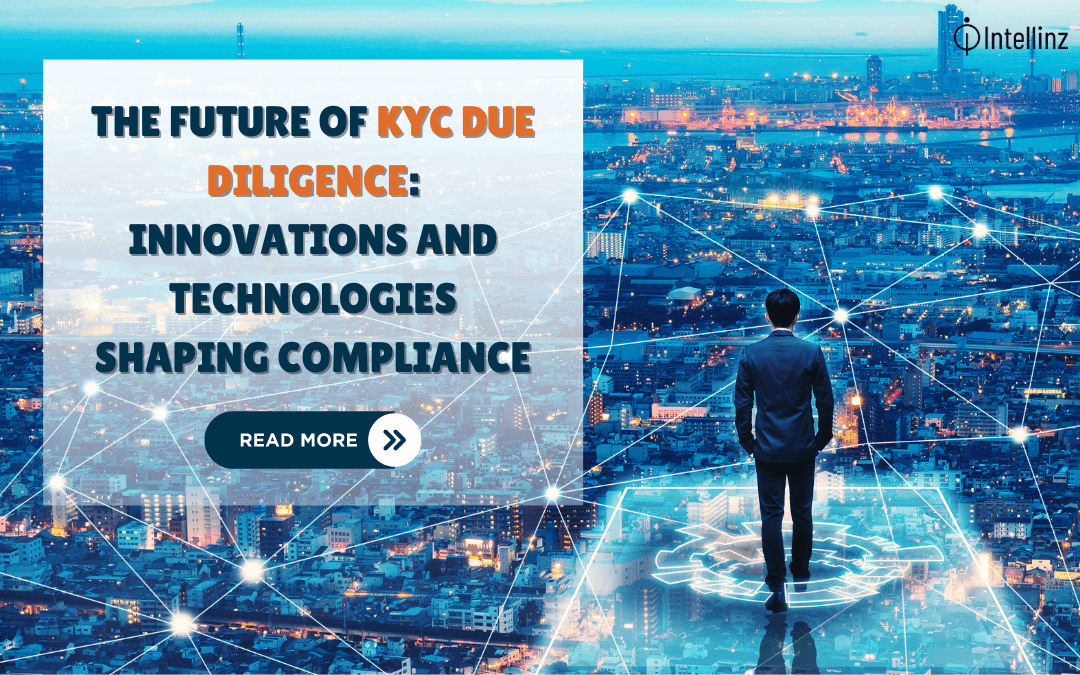A vital part of anti-money laundering (AML) laws and risk management plans in a variety of sectors is Know Your Customer (KYC) due diligence. KYC processes have historically been manual, labor-intensive, and prone to error. These shortcomings affect not only the customer experience but also compliance and risk management. But given how quickly technology is developing, KYC due diligence will likely change significantly in the future. The ways that businesses perform KYC are being completely transformed by advances in biometric verification, blockchain, artificial intelligence (AI), and machine learning (ML). These advancements guarantee stronger compliance, lower fraud, and improve customer onboarding procedures. This essay examines the major technological advancements influencing KYC due diligence going forward and how they might affect compliance plans.
1. Artificial Intelligence and Machine Learning
KYC due diligence is changing, and artificial intelligence (AI) and machine learning (ML) are leading the way. Large volumes of data may be swiftly and precisely analyzed by these technologies, which can also spot patterns and anomalies that might point to fraud. AI-powered solutions can greatly cut down on the time and expense involved in human KYC procedures by automating repetitive tasks like document verification and data cross-referencing.
In example, when machine learning algorithms process more data, they can get better over time at identifying suspicious activity and lowering false positives. By keeping their KYC procedures current and compliant, financial institutions are able to stay ahead of growing threats and regulatory changes thanks to these continuous learning capabilities.
2. Blockchain Technology
Customer data may be shared and stored securely and decentralized using blockchain technology, which is very helpful for KYC due diligence. Blockchain technology allows for the immutable recording of client data, making it accessible to only authorized parties. This feature ensures data integrity and lowers the possibility of tampering or illegal access.
Additionally, blockchain can let institutions share data more effectively, cutting down on effort duplication and simplifying the KYC procedure. For instance, a customer’s data can be safely shared with other parties on the blockchain after being validated by one organization, removing the need for recurrent KYC checks and improving the user experience.
3. Biometric Verification
KYC due diligence is becoming more and more enhanced by the use of biometric verification technologies like voice recognition, fingerprint scanning, and facial recognition. Because these technologies are based on distinct biological characteristics that are challenging to duplicate or fabricate, they provide a higher level of protection than more conventional techniques, such as passwords or security questions.
Biometric verification enables users to swiftly and securely confirm their identification using a computer or smartphone, which can speed up the onboarding process. In addition to improving user experience, this lowers the possibility of identity theft and guarantees that financial services are only accessible to legitimate clients.
4. Digital Identity Solutions
Since they offer a more effective and secure means of online consumer identification verification, digital identity solutions are quickly emerging as a crucial instrument for KYC due diligence. These systems generate a distinct and verifiable digital identity for every consumer by combining digital credentials, such as government-issued IDs, with biometric information.
Customers may simply establish their identification while opening a bank account, applying for a loan, or performing other financial operations by using their mobile devices to access and securely retain their digital identities. Financial institutions can decrease their dependence on physical papers, minimize operating expenses, and offer a more seamless customer experience by utilizing digital identification solutions.
5. Enhanced Data Analytics and Big Data
Another important trend influencing how KYC due diligence will be conducted in the future is the use of big data and better data analytics. Financial companies may now create full consumer profiles and more accurately identify possible hazards by utilizing massive volumes of data from a variety of sources, such as social media, transaction records, and public databases.
Institutions can spot odd behaviors or transactions that can point to money laundering or other financial crimes by instantly examining this data. Organizations may keep ahead of legal requirements and safeguard themselves and their clients from fraudulent activity by taking a proactive approach to risk management.
6. Regulatory Technology (RegTech)
RegTech, or regulatory technology, is the term for the application of technology to facilitate more effective and efficient regulatory compliance for enterprises. RegTech solutions can reduce the workload on compliance teams and lower the possibility of human error by automating various components of the KYC process, from customer onboarding to ongoing monitoring and reporting.
Additionally, RegTech can offer institutions real-time notifications and insights into regulatory developments, assisting them in adhering to changing laws and norms. The need for RegTech solutions is projected to rise along with the complexity and globalization of regulatory regulations, spurring additional innovation in the KYC field.
The Future Outlook
By utilizing cutting-edge technologies, KYC due diligence will become a more effective, safe, and user-friendly procedure in the future. We should anticipate a move toward more automated and intelligent KYC systems that can swiftly adjust to new threats and regulatory requirements as financial institutions and other companies use these technologies.
Even if technology has numerous advantages, to protect data security and privacy, innovation must be balanced with strong governance. While adopting KYC due diligence, organizations still need to be on the lookout for ways to safeguard consumer data and adhere to legal requirements.
In summary, the KYC landscape is changing as a result of the convergence of blockchain, artificial intelligence, biometric verification, digital identity solutions, big data analytics, and regtech. These technologies improve risk management and compliance while also giving customers a more seamless and secure experience. Organizations that make these innovations investments will be better positioned down the road to manage the changing regulatory landscape and keep a competitive advantage in the marketplace.
Looking for more interesting blog articles? Check out our website at https://intellinz.com/ to explore our blogs and discover how our Intellinz platform can support you on your investment journey.






